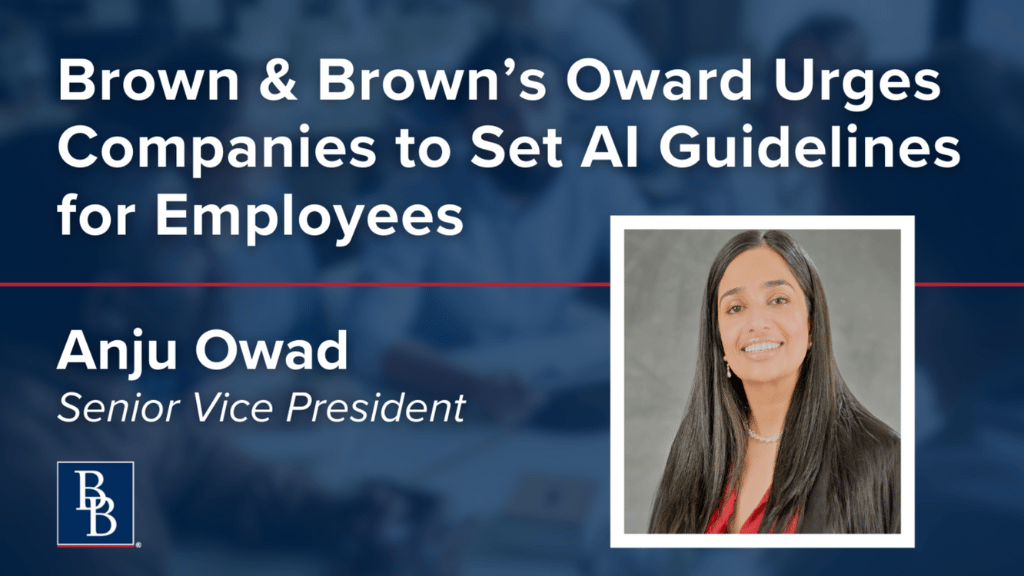The AI Action Summit 2025, held in Paris, brought together global leaders, policymakers, and industry experts to shape the future of artificial intelligence. With €200 billion in EU investments and significant commitments from the US, the summit underscored AI's transformative potential across industries, including insurance. For insurers, the summit’s discussions and outcomes highlight critical opportunities and challenges that will shape the sector in the coming years.
Key Insights from the AI Action Summit 2025
Diverging Regulatory Frameworks
The summit revealed a stark contrast in AI governance approaches between the EU and the US. The EU is advancing its AI Act, which emphasizes ethical AI governance, transparency, and strict data protection under GDPR. This creates a cautious but structured environment for insurers, ensuring fairness and accountability in AI-driven decision making. On the other hand, the US is pursuing a market-driven approach, prioritizing innovation and speed over stringent regulations. While this fosters rapid AI adoption, it also raises concerns about oversight and consumer protection.
For global insurers, navigating these differing frameworks will be a key challenge. In the EU, compliance with GDPR and the AI Act will require robust governance structures, transparency in AI models, and adherence to ethical standards. In the US, insurers will need to balance innovation with self-regulation to maintain consumer trust and avoid potential backlash.
AI Driven Risk Assessment and Personalized Underwriting
AI is revolutionizing risk assessment and underwriting processes. Insurers are leveraging AI to analyze vast datasets, including IoT, telematics, and social media, to improve risk evaluation and offer personalized policies. For example:
Telematics in auto insurance enables real-time monitoring of driving behavior, allowing insurers to price policies more accurately.
IoT devices in homes provide data on potential risks, such as water leaks or fire hazards, enabling proactive risk management.
However, privacy considerations differ significantly between regions. The EU’s strict data usage policies under GDPR require insurers to ensure transparency and obtain explicit consent for data collection. In contrast, the US offers more flexibility, with state specific regulations allowing broader use of consumer data. Insurers operating in both markets must tailor their data strategies to comply with regional requirements while maximizing the value of AI-driven insights.
Efficiency and Sustainability in AI Models
The summit emphasized the importance of AI efficiency and sustainability, particularly as insurers scale AI adoption. Resource-efficient AI models are becoming essential to reduce operational costs while maintaining high performance. This is critical for insurers looking to streamline claims processing, detect fraud, and enhance customer service.
For example:
AI-powered claims automation can reduce processing times from weeks to hours, improving customer satisfaction and cutting costs.
Fraud detection algorithms identify anomalies in claims data, saving insurers millions annually.
Additionally, the focus on sustainability aligns with insurers’ growing commitment to ESG (Environmental, Social, and Governance) goals. Developing energy-efficient AI models and integrating green technologies will not only reduce environmental impact but also enhance insurers’ reputations as socially responsible organizations.
Challenges and Opportunities for the Insurance Industry
Regulatory Compliance
The EU’s AI Act and GDPR will require insurers to implement robust governance frameworks, ensuring transparency, fairness, and accountability in AI-driven decisions. In the US, the lack of uniform regulations presents both opportunities for innovation and risks of inconsistent practices. Insurers must invest in compliance strategies to navigate these complexities.
Workforce Transformation
As AI automates routine tasks, such as claims processing and underwriting, the insurance workforce will need to adapt. Reskilling and upskilling employees to work alongside AI systems will be critical. The summit highlighted the importance of workforce adaptability, with policymakers urging insurers to invest in training programs that prepare employees for an AI-driven future.
Ethical AI Practices
The summit underscored the need for ethical AI development to address biases in algorithms and ensure fairness in decision-making. For insurers, this means diversifying training datasets, implementing explainable AI (XAI) systems, and maintaining human oversight in critical processes.
Cybersecurity Risks
As insurers rely more on AI, the risk of cyberattacks increases. AI systems, especially those linked to external networks or cloud-based platforms, can become targets for data breaches and ransomware attacks. Insurers must prioritize cybersecurity measures, including encryption, intrusion detection, and regular vulnerability assessments, to protect sensitive customer data.
What This Means for Insurers in the US and EU
The AI Action Summit 2025 highlighted the transformative potential of AI in the insurance industry, but it also brought to light the challenges of navigating a rapidly evolving landscape. For insurers in the US and EU, the key takeaways are clear:
Adapt to Regional Regulations: Insurers must align their AI strategies with regional regulatory frameworks, balancing innovation with compliance.
Leverage AI for Competitive Advantage: From personalized underwriting to automated claims processing, AI offers significant opportunities to enhance efficiency, reduce costs, and improve customer experiences.
Invest in Sustainability: Developing resource-efficient AI models and integrating green technologies will be essential to meet ESG goals and build consumer trust.
Prioritize Workforce Development: Reskilling employees and fostering a culture of innovation will ensure a smooth transition to an AI-driven future.
Looking Ahead
The insurance industry is at a pivotal moment, with AI poised to redefine operations, customer interactions, and risk management. The insights from the AI Action Summit 2025 provide a roadmap for insurers to navigate this transformation responsibly and effectively.

Insurers report Speed and Efficiency as most favoured AI benefits for operations
Artificial intelligence (AI) is rapidly transforming the insurance industry, with its primary appeal lying in its ability to enhance speed, efficiency, and customer satisfaction. According to a recent report by GlobalData, the most compelling aspect of AI for consumers is its ability to accelerate service delivery, from faster claims processing to 24/7 customer support (Life Insurance International).
The Speed Advantage: Why AI is Reshaping Insurance
The insurance industry has long been associated with slow, paper-heavy processes. AI is changing that by automating and streamlining workflows, enabling insurers to deliver faster and more accurate services. Key areas where AI is making a difference include:
Claims Processing:
AI-powered systems can evaluate claims, verify information, and assess damage using abilities like image recognition and natural language processing (NLP). This reduces processing times from weeks to hours, improving customer satisfaction and cutting operational costs (Forbes).
For example, auto insurers are using AI to analyze customer-submitted photos of vehicle damage, classify the severity, and process claims almost instantly.
24/7 Customer Support:
AI chatbots and virtual assistants provide round-the-clock support, handling inquiries, policy updates, and claims tracking. Nearly 49% of consumers surveyed by GlobalData identified 24/7 availability as the most useful AI feature in insurance (Life Insurance International).
Faster Risk Assessment:
AI leverages data from IoT devices, telematics, and wearables to create real-time risk profiles. This allows insurers to offer personalized policies and optimize pricing based on actual behavior rather than generalized models (Insurance Thought Leadership).
Consumer Expectations and AI Adoption
The GlobalData survey revealed that consumers are increasingly open to AI in insurance, with younger demographics showing the highest levels of acceptance. Only 6.9% of younger respondents expressed concerns about AI in customer service, compared to 16.9% across all age groups. This indicates a growing trust in AI’s ability to enhance the insurance experience.
However, the report also highlights that insurers must address concerns around data privacy and algorithmic bias. Transparency in how AI systems operate and how customer data is used will be critical to maintaining trust.

Why Companies Need AI Guidelines: Insights from Brown & Brown
As artificial intelligence (AI) abilities become increasingly integrated into business operations, the need for clear guidelines and policies around their use has never been more critical. Anju Owad, Senior Vice President at Brown & Brown Insurance, recently shared her insights in The Insurer on why companies must prioritise AI governance to mitigate risks and ensure responsible usage.
The Growing Need for AI Policies
AI offers businesses a competitive edge by enabling faster, more efficient, and cost-effective operations. However, as Owad points out, the benefits of AI come with significant risks if not managed properly. The recent cyberattack on the AI platform DeepSeek has underscored the vulnerabilities associated with AI abilities, particularly around data security and control.
“Organizations want to have a competitive edge,” Owad explains. “They want things that are efficient, faster, cheaper, and AI is a good ability for that. But if you’re not going to do the due diligence behind it, then it can be dangerous.”
Key Questions to Consider Before Using AI
To ensure responsible AI adoption, Owad recommends that companies ask the following critical questions before implementing AI abilities:
Where’s the data going?
Understanding the flow of data is essential to ensure it is not being misused or exposed to vulnerabilities.How secure is it?
Companies must evaluate the security measures in place to protect sensitive information from breaches.What kind of controls are in place?
Establishing robust controls ensures that AI abilities are used within defined boundaries and comply with regulatory requirements.How much control do you have over the data?
Retaining control over data is crucial to prevent misuse and maintain compliance with privacy laws.
The Importance of Due Diligence
Owad’s insights highlight the importance of conducting thorough due diligence before adopting AI abilities. While AI can drive innovation and efficiency, failing to address its risks can lead to significant consequences, including data breaches, regulatory penalties, and reputational damage.
By implementing clear AI guidelines and policies, companies can harness the power of AI responsibly while safeguarding their operations and stakeholders.
Enjoyed today’s read? Join Simpli’s Slack community where you can find:
Archived newsletters published by Simpli.
Guides and Resources for Insurance professionals.
Database with over 1000+ curated Digital Transformation tools/
And much more - follow the link to join!